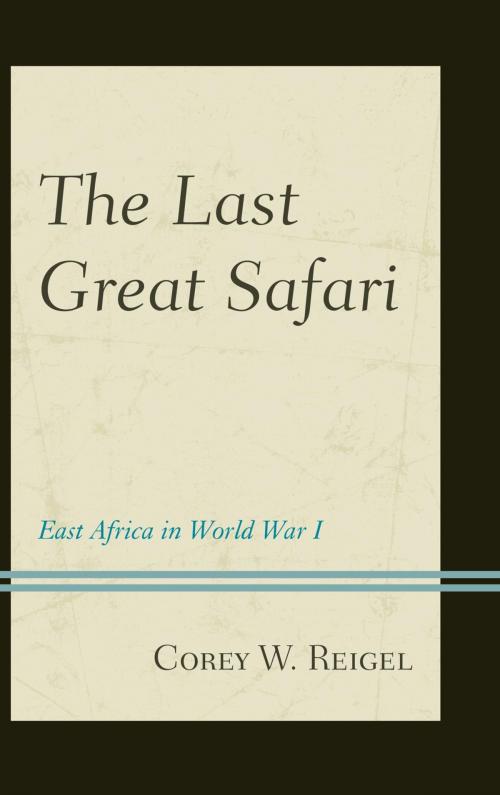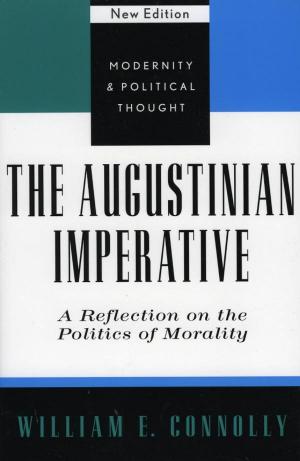| Author: | Corey W. Reigel | ISBN: | 9781442235939 |
| Publisher: | Rowman & Littlefield Publishers | Publication: | April 22, 2015 |
| Imprint: | Rowman & Littlefield Publishers | Language: | English |
| Author: | Corey W. Reigel |
| ISBN: | 9781442235939 |
| Publisher: | Rowman & Littlefield Publishers |
| Publication: | April 22, 2015 |
| Imprint: | Rowman & Littlefield Publishers |
| Language: | English |
In The Last Great Safari: East Africa in World War I, military historian Corey W. Reigel explores a fascinating and misunderstood theater of operations in the history of the First World War. Unprepared for the Great War, colonial units combined modern industrial weapons and equipment with traditional African methods to produce a hybrid force. Throughout The Last Great Safari, Reigel challenges myth after myth. Were really one million Allied soldiers pulled up from Europe to toil in the tropical sun only to fall victim to local diseases? Did the Germans truly become masters of guerrilla warfare and humiliate the British Empire in what appeared a David versus Goliath conflict?
Reigel brings together traditional military studies and African history to explore the myths, fables, and stereotypes that have long characterized examinations of this topic, from questions as to how German East Africa contributed to the fate of the war to claims respecting significant diversion of resources. Racism played a significant role in then prevalent definitions of what constituted military success and in how Africans and Indians were recruited, holding more sway in the minds of white armies as a success factor than differences in weapons. Reigel points out how modern methods of medicine and transportation ultimately failed, only to be replaced by a hybrid of industrial Europe and traditional African solutions for dealing with an especially difficult climate. In the end, when necessity came to outweigh then current ideas of professionalism did German forces outfight their opponents.
The Last Great Safari: East Africa in World War I will interest students of military history, African studies, and World War I, as this tale of colonial warfare within a war of attrition shaped part of Africa’s colonial future.
In The Last Great Safari: East Africa in World War I, military historian Corey W. Reigel explores a fascinating and misunderstood theater of operations in the history of the First World War. Unprepared for the Great War, colonial units combined modern industrial weapons and equipment with traditional African methods to produce a hybrid force. Throughout The Last Great Safari, Reigel challenges myth after myth. Were really one million Allied soldiers pulled up from Europe to toil in the tropical sun only to fall victim to local diseases? Did the Germans truly become masters of guerrilla warfare and humiliate the British Empire in what appeared a David versus Goliath conflict?
Reigel brings together traditional military studies and African history to explore the myths, fables, and stereotypes that have long characterized examinations of this topic, from questions as to how German East Africa contributed to the fate of the war to claims respecting significant diversion of resources. Racism played a significant role in then prevalent definitions of what constituted military success and in how Africans and Indians were recruited, holding more sway in the minds of white armies as a success factor than differences in weapons. Reigel points out how modern methods of medicine and transportation ultimately failed, only to be replaced by a hybrid of industrial Europe and traditional African solutions for dealing with an especially difficult climate. In the end, when necessity came to outweigh then current ideas of professionalism did German forces outfight their opponents.
The Last Great Safari: East Africa in World War I will interest students of military history, African studies, and World War I, as this tale of colonial warfare within a war of attrition shaped part of Africa’s colonial future.















